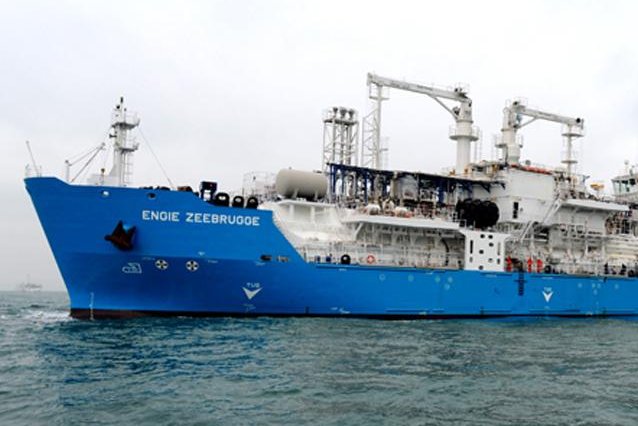French energy company ENGIE takes delivery of first-ever bunkering vessel in the maritime market for liquefied natural gas. Photo courtesy of ENGIE.
Feb. 15 (UPI) -- French energy company ENGIE said it was leading efforts to offer low-carbon options to the maritime shipping industry with liquefied natural gas.
The French energy company, working in cooperation with its Japanese and Belgian natural gas transmission operator Fluxys, said it took delivery of the first-ever bunkering vessel powered by liquefied natural gas.
Bunkering is the ship-to-ship transfer of fuel. ENGIE said the vessel, christened Zeebrugge after its home port, will run on LNG and supply LNG as a marine fuel to vessels operating in northern European waters.
With international regulations calling for fewer emissions in the transportation sector, LNG serves a unique niche.
"While LNG-fueled ships up to now have been largely dependent on fixed bunker locations or the limited bunkering capacity of LNG trailers, ENGIE Zeebrugge, the first purpose built LNG bunkering vessel, has been designed to service a variety of LNG-fueled ships," the French company said in a statement.
ENGIE signed an agreement with Japanese shipping company NYK to build the LNG-powered vessel in 2015. The LNG used for the bunkering vessel will be sourced from the portfolio of the French company, which is one of the largest LNG suppliers in the world.
ENGIE in October signed a similar agreement with French shipping company CMA CGM to promote LNG as an alternative fuel source for maritime shippers.
LNG is gaining traction in the maritime transportation sector. In January, German utility group RWE said it would work with port officials to create infrastructure to fuel vessels with LNG.
A pilot phase involves mobile fueling stations and conversion of port vehicles to work on LNG.















